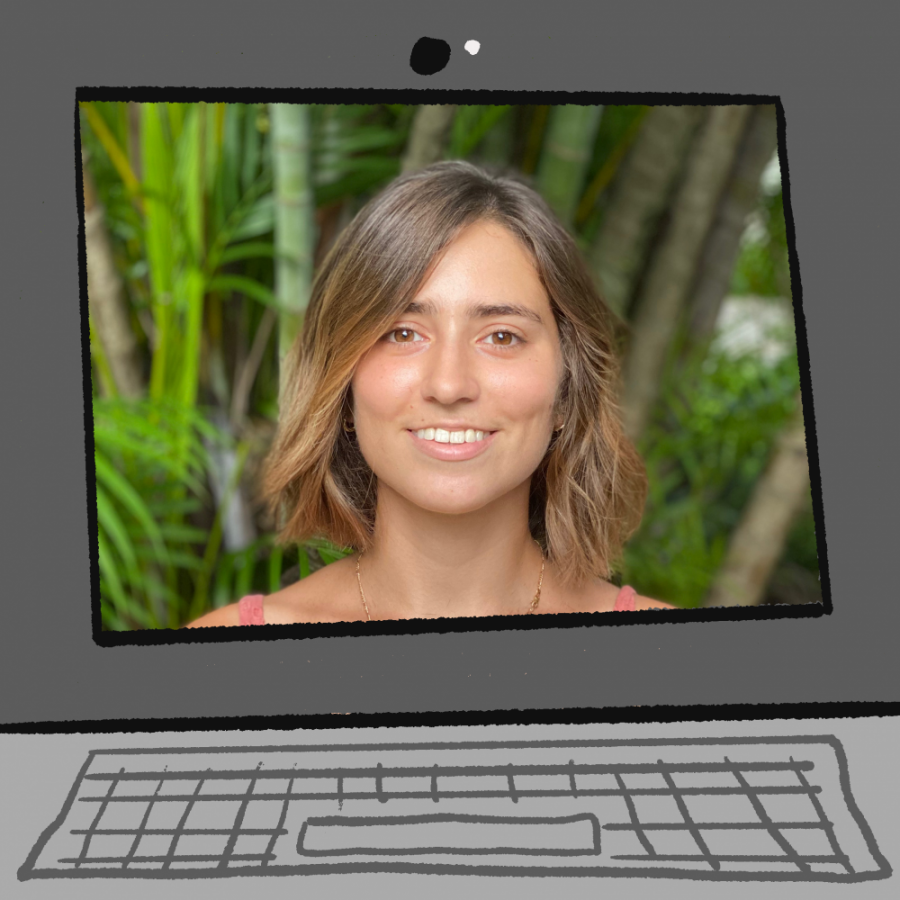In the COVID-19 era of taking classes from bed, students have never encountered a more leisurely form of attending lectures. Students can wake up minutes (or seconds) before their Zoom call, turn on their computer and, if allowed, avoid worrying over appearances by leaving their camera off. On paper, this seems like paradise, but only if you try to forget the reason for Zoom in the first place. On top of pre-existing obstacles such as student debt, unaffordable healthcare and systemic oppression, COVID-19’s effect on the current education system has added another burden to students’ mental health. Feeling sick? You can still technically turn on your computer and listen to lectures at the designated time. Received bad news? Some professors still expect you to attend class and won’t give you an extension on assignments. While there is some evidence that remote learning is just as effective as in-person learning, the fact remains that many students are now reporting higher rates of depression and anxiety.
Professors can be supportive to students by understanding their personal situations. Still, some of them block students from taking the self-care they need during this difficult time.
On Sept. 15, a fellow opinion editor described her intense anxiety to complete schoolwork on top of other personal tasks and urged professors to practice compassion by giving leeway on assignment deadlines. Professors directly impact student schedules and workloads, and they should take the pandemic into consideration when teaching and writing assignments. Professors can lessen pressure on students and relieve added stress during an already stressful time.
Even though students can log on to Zoom while ill or while dealing with personal struggles, professors should not expect this to be done with ease. Many are still strict about attendance and participation, whether in-person or remote, and some are downright unforgiving. While Zoom classes are more convenient, students should not be pressured to obtain participation points by speaking in class. Students should be allowed to miss class for mental or physical health, in agreement that they will watch the lecture later. By allowing flexibility, students can take their time to mourn, heal or deal with pressing issues. Even though I’ve had a relatively positive experience so far with my Zoom classes, those are only five professors out of all the faculty at NYU. My peers are not as lucky.
Understandably, there are fears of students taking advantage of these freedoms. Professors might be reluctant to not enforce participation if nobody speaks up in class. They might worry about groups of students skipping class with flimsy excuses. While unfortunately dishonest or lazy people take advantage of kindness, it is better to be compassionate and understanding than stubborn and draconic during these difficult times.
Some working options from my professors include:
- Keep open communication with students and assess case-by-case by asking students to email before skipping class.
- Follow-up with students if they are doing better (but no need to pry about specific details of the student’s dilemma).
- Record the lecture to be viewable post-live.
- Automate 24-hour grace periods for every assignment.
- Accept other forms of participation that don’t include speaking up or having the camera on (this can be through submissions, writing out questions or comments in the chat, and asking questions in office hours or email).
- Generously accept extensions.
- Suggest keeping cameras on so professors aren’t looking at a blank screen, but do not punish, pressure or harass students for keeping cameras off if they have a good reason.
- Check in on students with anonymous polls to understand students’ sentiments.
Here are also some of my suggestions based on experience:
- Do not make assignments due at odd times during the weekday (this can conflict with other class schedules).
- Keep deadlines consistent at either midnight in Eastern Standard Time or before class.
- Avoid setting deadlines on the weekend (Saturday is too soon).
These might seem demanding, especially if you are a professor for multiple classes or large lectures. Not every point needs to be followed, but any help that professors can give alleviates pressure on students. Students know that professors are not perfect and that all levels of academia feel the impact of COVID-19, and it’s time for some professors to acknowledge that students are being impacted by the pandemic as well. This is not to dump work onto professors so students can sip pina coladas, but to demonstrate ways to incorporate friendlier policies at no excessive cost.
Professors need to be more lenient with students during this time. My pre-med friend should not be sending me distraught Snapchats about how her professor ignored her email and gave her an F after she was mourning her family member’s passing. Students may be able to join class with the click of a button, but they still need days off for sickness, mental health and personal dilemmas. We are all human, after all.
Opinions expressed on the editorial pages are not necessarily those of WSN, and our publication of opinions is not an endorsement of them.
A version of this article appeared in the Monday, Sept. 28, 2020 e-print edition. Email Bianca de Ayala at [email protected].























































































































































